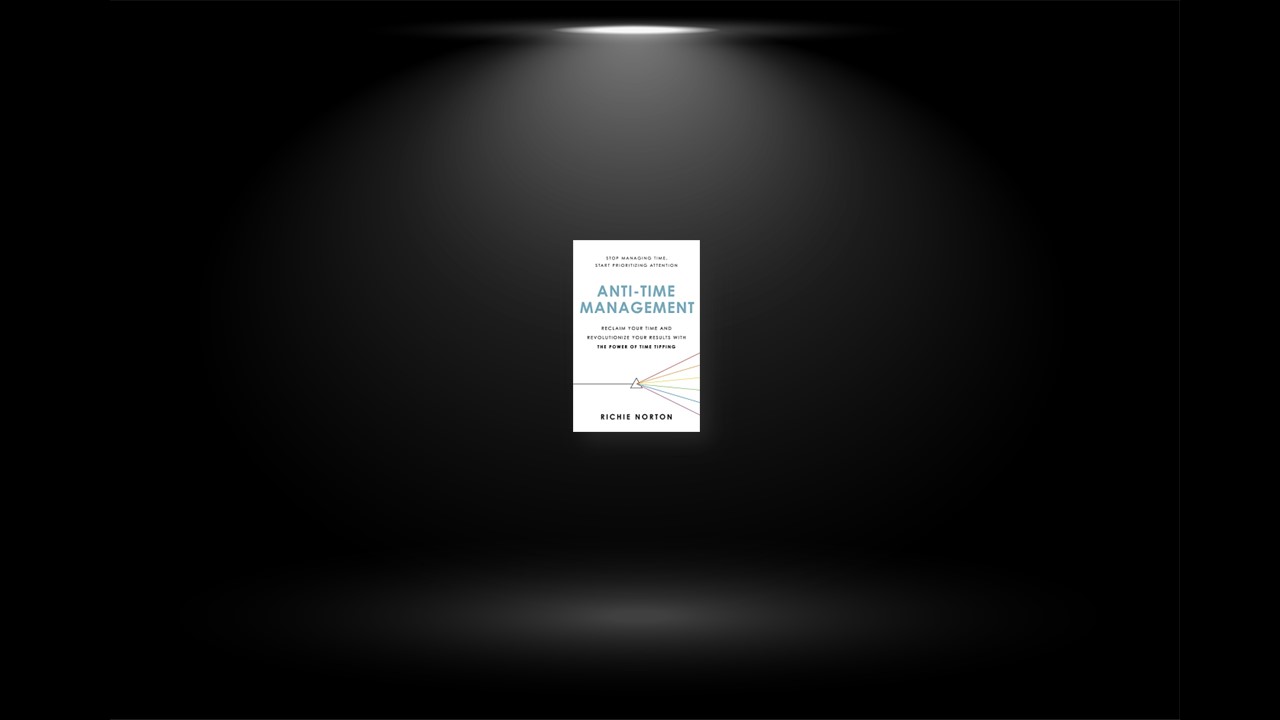Choose What to Do and When
Start Tipping Time by identifying the Four-Ps of Productivity:
- Personal: Personal Purpose relates to priorities that would be just for you.
- Professional: Professional Purpose relates to priorities that could include any accomplishments related to your career
- People: People Purpose relates to priorities around important people in your life.
- Play: Play Purpose relates to priorities, activities, and contributions that fill your soul and make you feel energized
- Choose One: Look back at your life’s dreams under the Four-Ps. Can you do all of them at once? The reality is you probably can’t do them all at the same time.
- Look at your Personal List, Professional List, People List, and Play List.
- If you could keep only one dream from each list, which ones would they be?
- Circle the one thing you’d keep from each list.
You should have Four Priorities to support your Four Purposes in front of you now. These Four Purposes and Priorities are your North Star for now. Whenever you have to navigate through the rough waters of important decisions, you can ask yourself what choice will bring you closer to making living your priorities happen or pushing them further away.
- Make It Happen
- Write down your Four
- Write down the date you want to accomplish each one.
- Write down what you’re going to do to create an environment at home and work so the space you live in encourages behaviors aligned with your values.
- Write down an if-then statement for each of your Four Priorities.
For example, if your Personal Priority is to be fit, your Professional Priority is to make a million dollars, your People Priority is to improve your relationship with a loved one, and your Play Priority is a trip around the world with your family, here’s a blanket formula you can use (or create your own) to write an if-then statement that keeps you centered:
If I do ABC, then I’ll achieve XYZ by DATE.
You can take it a step further toward the meta-goal—the reason beyond the goal—to keep you motivated like this:
If I do ABC every day, then I’ll achieve XYZ by DATE, so that HAPPY THING happens years before I’d imagined.
Own Your Time
Balanced forces create unchanging motion. Seeking balance between life and work is like playing tug-of-war or trying to open a door while someone is holding it closed.
Changing motion requires unbalanced force—push or pull. Trying to balance your time between life and work keeps you stuck because balanced forces are motionless. Life is tugging on one side, and work is tugging on the other.
If you want forward motion in the direction you want to go to create positive change, then your responsibility is to set things in motion (not do it all). Naturally, you need to unbalance your life, but get the ball rolling in the direction you’d like to go (and change direction when you want). Life and work can support one another with alignment and elasticity of time. Work-life flexibility minimizes stress and maximizes advantages because it helps you win the game of tug-of-war (or avoid it altogether) and opens doors.
Free Up Your Time with EDO
Eliminate. Delegate. Outsource. EDO is an anti-time management work-life integration tool to help you design a personalized environment of high trust and high productivity for the daily living of your priorities by thinking through how your work is accomplished now and how it might be done differently to meet your purposes effectually.
If taken seriously, these two principles will save you a ton of time, money, and headache in creating important work and life projects:
- Begin with ends, not means.
- Delegate results, not methods.
Consider the result, and then architect a way to get there. For example, don’t ask others to help you and then micromanage them if you don’t want to be a micromanager. Magic happens when you thrive in your zone of high impact and empower others to thrive in their zone of high impact without mistaking means for ends or beginnings.
Don’t Multitask, Project Stack
Project Stacking is not multitasking. Project Stacking creates an interlocked network—multitasking does not.
Elon Musk’s three companies, Tesla, SpaceX, and SolarCity, are public examples of Project Stacking. At first glance, these enterprises appear to be distinct and unrelated, but upon closer inspection, it’s clear that these are three projects stacked together and working interdependently. It’s been described that Musk “sees the three companies as an interconnected network, and wants to make sure that each leg of the tripod can help out the others.” The companies cross-pollinate, sharing technology and growing his overarching vision.
Perhaps one of the most prominent displays of Project Stacking comes from Dwayne “The Rock” Johnson. He’s become one of the highest-paid actors of all time, but he doesn’t stop there. He has several companies built around his interests and opportunities to help others. It would be hard to find a post he shares that doesn’t include many of his projects being promoted or merged or somehow connected all simultaneously. He ties it all together under one umbrella with his meta-value.
Outsource to Experts
Expert Sourcing helps you get it all done—even if you “don’t have time” and “don’t know how,” leaving you with no excuse.
- Go through your Four-Ps and the tasks and activities you identified.
- Look at the list where you identified what needs to be delegated or outsourced.
- Put a date next to each one where you plan to have that task taken off your plate (if you haven’t already).
- Also, look again at the tasks and ask yourself if it could be done better by someone else (even if you like it, want to do it, and are good at it). What if you delegated or outsourced the process too? Decide on a soft date for the tasks you want to outsource as a mind-game activity to open yourself up to new possibilities.
- Delegate the tasks that can be done by others or that you don’t want to do. These are not tasks of your highest use and value. Free your mind and time
- Build trust with the delegate.
- Repeat.
Ask Better Questions
Not every question has an answer, but every question can keep you curious.
Do you want to stay open to learning, doing, and knowing new things you haven’t experienced yet? Experience isn’t everything in creating—intuition, assumptions, and a little extra knowledge help you make the leap when you don’t know exactly what to do.
The traditional ladder climb keeps people from asking questions and reaching for dreams outside their limited experience. Ladder climbers shy away from looking for answers outside their laddered experience for fear of being wrong or appearing naive. Consider these three legendary questions and apply them to your own situation:
“Life’s most persistent and urgent question is, ‘What are you doing for others?’”
Martin Luther King Jr. said, “Every person must decide at some point whether they will walk in the light of creative altruism or in the darkness of destructive selfishness. This is the judgment: ‘Life’s most persistent and urgent question is, what are you doing for others?’”
“If today were the last day of my life, would I want to do what I’m about to do today?”
Steve Jobs said, “When I was 17, I read a quote that went something like: ‘If you live each day as if it was your last, someday you’ll most certainly be right.’
“What, if anything, about the way people are leading today needs to change?”
Brené Brown asked, “What, if anything, about the way people are leading today needs to change in order for leaders to be successful in a complex, rapidly changing environment where we’re faced with seemingly intractable challenges and an insatiable demand for innovation?”
What question haven’t you asked yourself?


